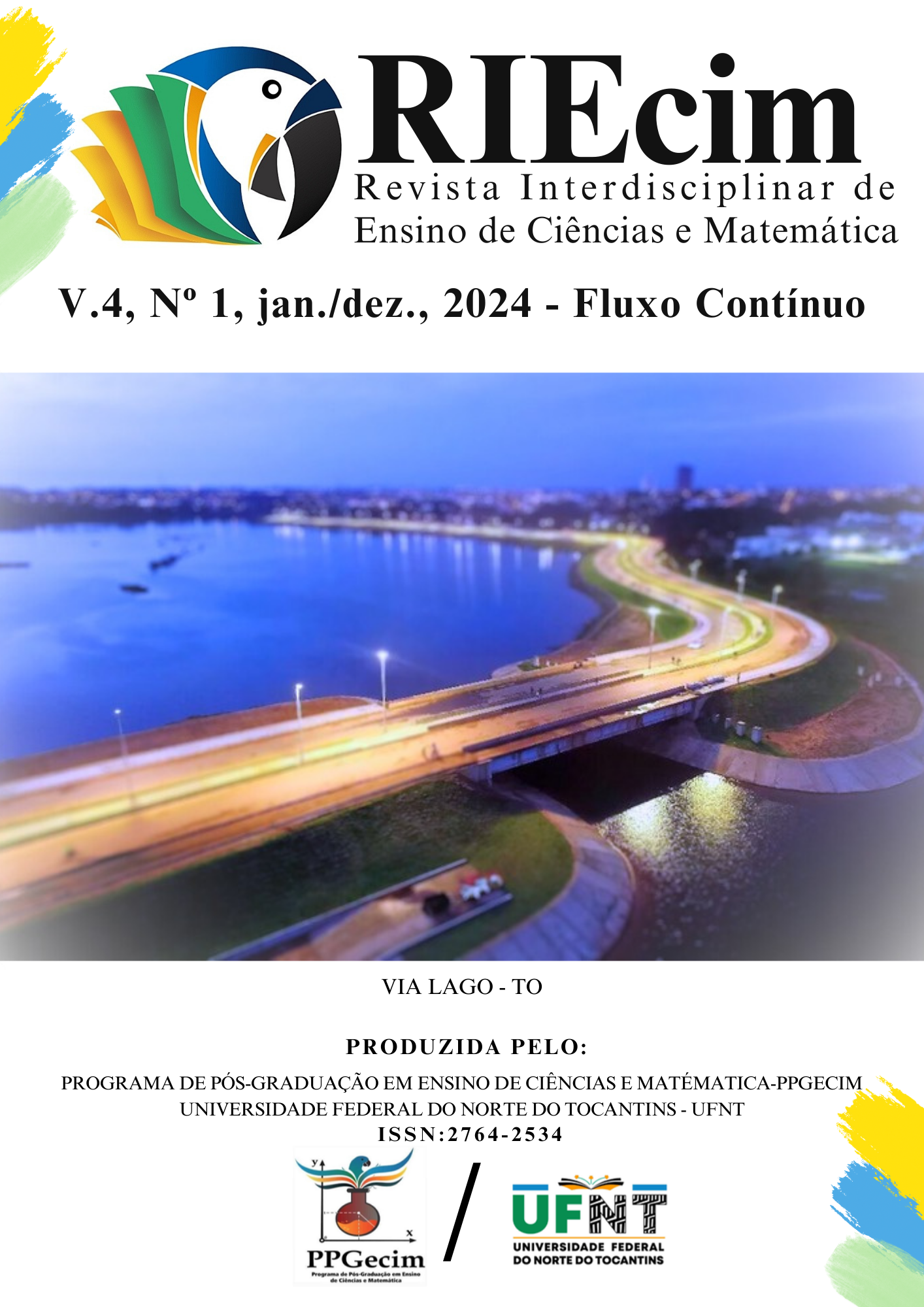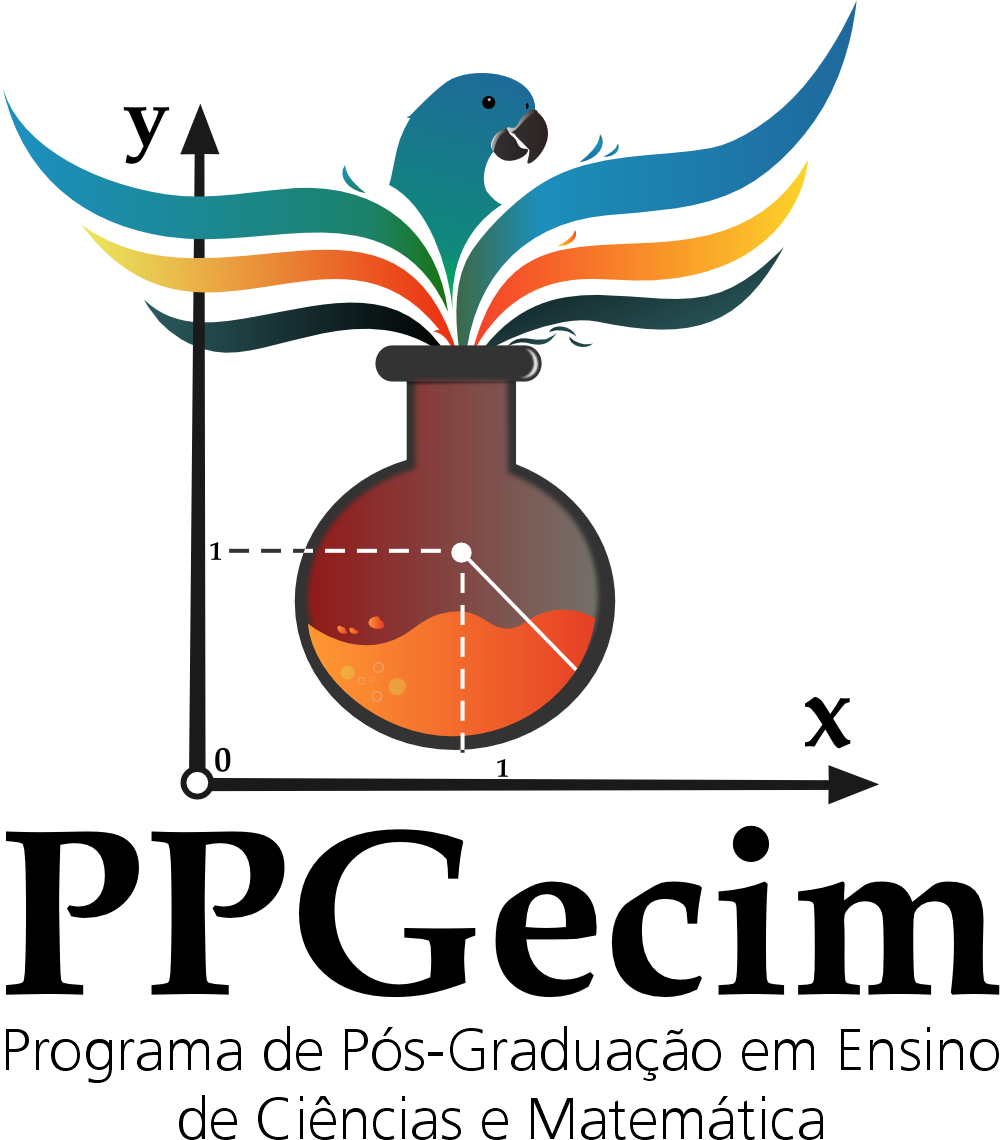TEACHING PHYSICS: AN APPROACH OF DIDACTIC PRACTICES IN THE CONTEXT OF EJA
DOI:
https://doi.org/10.70860/RIEcim.2764-2534.2024.v4.19457Keywords:
Teaching Physics, Learning, Education of Young People, Adults and ElderlyAbstract
This text aims to report the experience of teaching thermometric and heat scales in Physics teaching. Thus, it presents some approaches to temperatures in Physics teaching, taking into account the social context of students, in addition to discussing how these concepts are addressed in the official documents that govern Brazilian basic education. Therefore, the methodology adopted was a qualitative approach, which deals with the development of the subjects involved. Thus, it was applied in a high school unit in the State of Bahia, in the Identity Territory of Piedmont North of Itapicuru with students studying Youth and Adult Education (EJA), Stage VII - 3rd grade. 20 students participated in the teaching practice. Therefore, after applying and analyzing the discussions, it can be seen how Physics teaching applied to the social context contributes to the development of students' learning. In conclusion, it can be said that didactic practice applied to social contexts has great relevance for EJA students.
References
BAHIA. Secretaria de Educação do Estado. Documento curricular referencial da Bahia para Educação Infantil e Ensino Fundamental. v. 1. Rio de Janeiro: FGV Editora, 2022.
BARDIN, Laurence. Análise de conteúdo. Lisboa: Edições 70, 1977.
BRASIL. Base Nacional Comum Curricular (BNCC): educação é a base. Brasília, DF: MEC/CONSED/UNDIME, 2018. Disponível em: http://basenacionalcomum. mec.gov.br/images/BNCC_publicacao.pdf- Acesso em: 4 jan. 2024.
BRASIL. Ministério da Educação. Parâmetros Curriculares Nacionais: Ciências da Natureza e Matemática e suas tecnologias. Brasília: MEC, 2000.
BRASIL. Lei nº 9.394, de 20 de dezembro de 1996. Lei de Diretrizes e Bases da Educação Nacional. Diário Oficial da União, 1996.
CAREGNATO, R. C. A.; MUTTI, R. Pesquisa qualitativa: análise de discurso versus análise de conteúdo. Texto e Contexto Enfermagem, Florianópolis, SC, v. 4, n. 15, p. 679-684, dez. 2006. DOI: https://doi.org/10.1590/S0104-07072006000400017
CINDRA, J. L; TEIXEIRA, O. P. B. Uma discussão conceitual para o equilíbrio térmico. Caderno Brasileiro de Ensino de Física, v. 21, n. 2, p. 176-193, ago. 2004. Disponível em, http://www.educadores.diaadia.pr.gov.br/arquivos/File/2010/artigos_teses/fisica/artigos/discussao_conceitual.pdf> Acesso em 30 de março de 2024.
CRUZ, D. Ciências e Educação Ambiental. São Paulo: Ática, 2002.
GAMA, A. C.; ERTHAL, J. P. C. Uma proposta para o ensino de física na educação de jovens e adultos: um exemplo pautado nos conteúdos de hidrostática. Revista Eletrônica Sala de Aula em Foco, 10(1), pp. 57-68, 2021. Disponível em:https://ojs.ifes.edu.br/index.php/saladeaula/article/download/945/754. Acesso em: 12 nov. 2024. DOI: https://doi.org/10.36524/saladeaula.v10i1.945
GREGOLIN, M. R. V. A análise do discurso: conceitos e aplicações. Alfa, v. 39. p.13-21, São Paulo-SP, 1995.
FREIRE, P. Pedagogia da esperança: um reencontro com a pedagogia do oprimido. 17 ed. São Paulo: Paz e Terra, 2011.
KELLER, F. J; GETTYS, W. E; SKOVE, M. J. Física. Makron books do Brasil. Editora Ltda, 1999. v. 1.
LIBÂNEO, J. C. Didático. 3.ed. São Paulo: Cortez, 2006.
LUCK, H. Concepções e processos democráticos de gestão educacional. 5ª ed. Vozes. Petrópolis; 2013.
MOREIRA, M. Ensino de Ciências e suas Metodologias. Campinas: Autores Associados, 2012.
OLIVEIRA, M. K. de. Jovens e adultos como sujeitos de conhecimento e aprendizagem. Revista Brasileira de Educação, Belo Horizonte, n.12, p. 59-73, set./dez. 1999. Disponível em:
< https://eixovpsicologia.pbworks.com/f/texto+6.pdf>. Acesso em 08 de março de 2023.
ORLANDI, E. P. Análise de discurso: princípios e6 procedimentos. 6. ed. Campinas: Pontes, 2005.
ORLANDI, E. P. Interpretação: autoria, leitura e efeitos do trabalho simbólico. Petrópolis, RJ: Vozes, 1996.
SAVIANI, D. A Educação de Jovens e Adultos no Brasil: História, Desafios e Perspectivas. Campinas: Autores Associados, 2013.
SOUZA, A. P. Educação de Jovens e Adultos: Caminhos e Desafios para o Ensino de Física. São Paulo: Atlas, 2015.
VIEIRA, M. M; ZOUAIN, D. V. Pesquisa qualitativa em administração: teoria e prática. Rio de Janeiro: Editora FGV, 2005.
VILELA, K. S. F. D. R. A utilização do forno de micro-ondas no ensino de física na educação de jovens e adultos (EJA). 2015.
WYLEN, G. V; SONNTAG, R. BORGNAKKE, C. Fundamentos da termodinâmica clássica. 4. ed. Tradução da americana. São Paulo: Edgard Blucher, 2004 pp.
Downloads
Published
How to Cite
Issue
Section
License
Copyright (c) 2025 ERINALDO FERREIRA DO NASCIMENTO, Francisco Ricardo Miranda Pinto

This work is licensed under a Creative Commons Attribution-NonCommercial 4.0 International License.
Copyright Policy
Copyrights are retained by the authors, who grant RIEcim the exclusive rights for first publication. Authors will not be remunerated for the publication of their work in this journal. Authors are permitted to enter into separate, additional contractual arrangements for the non-exclusive distribution of the work's published version in this journal (e.g., post it to an institutional repository, on a personal website, publish a translation, or as a book chapter), with acknowledgement of authorship and initial publication in this journal. The Journal's editors have the right to make textual adjustments and adaptations to conform to publication standards.
Open Access Policy
This journal provides immediate open access to its content, following the principle that freely providing scientific knowledge to the public contributes to the global democratization of knowledge. Users can read, download, copy, distribute, print, search, or use the content for any legal purpose, respecting national copyright laws and without seeking prior permission from the publisher or the author. The opinions presented in the articles are the responsibility of the authors. The Journal does not charge Article Processing Charges (APCs).
Licensing Policy - Usage License
Licensed under the Creative Commons Attribution-NonCommercial 4.0 International (CC BY-NC 4.0) License. This license allows sharing, copying, redistributing the manuscripts published in RIEcim in any medium or format. Additionally, it allows adapting, remixing, transforming, and building upon the material, as long as proper credit is given to the author and initial publication in this journal is acknowledged.

































